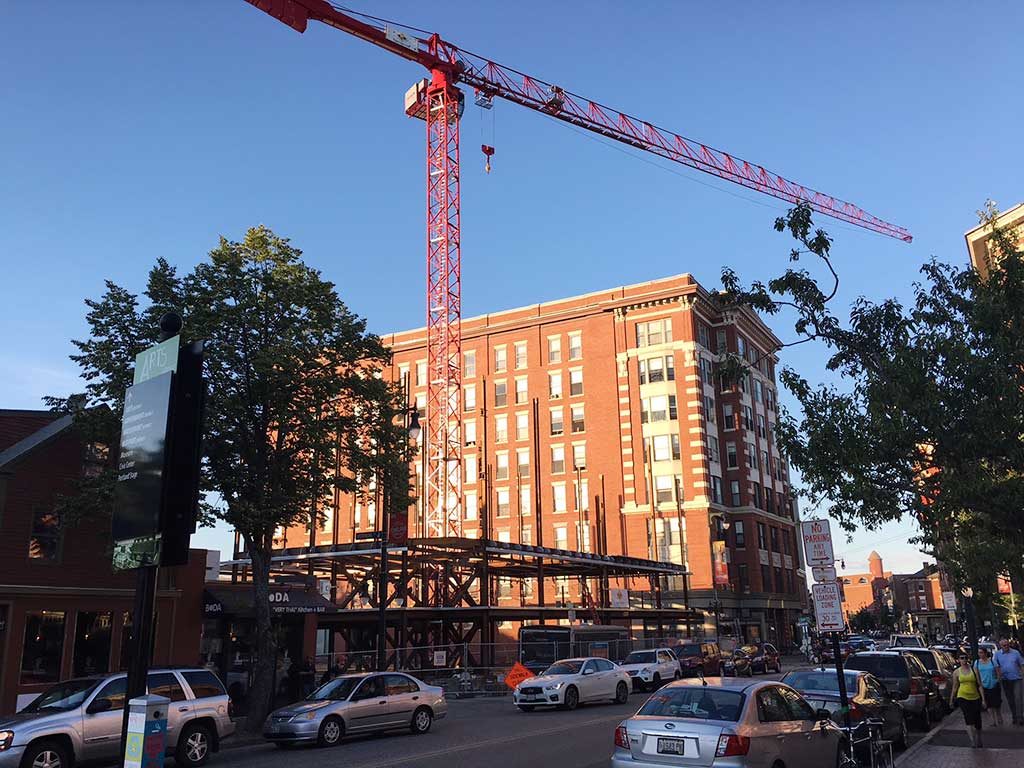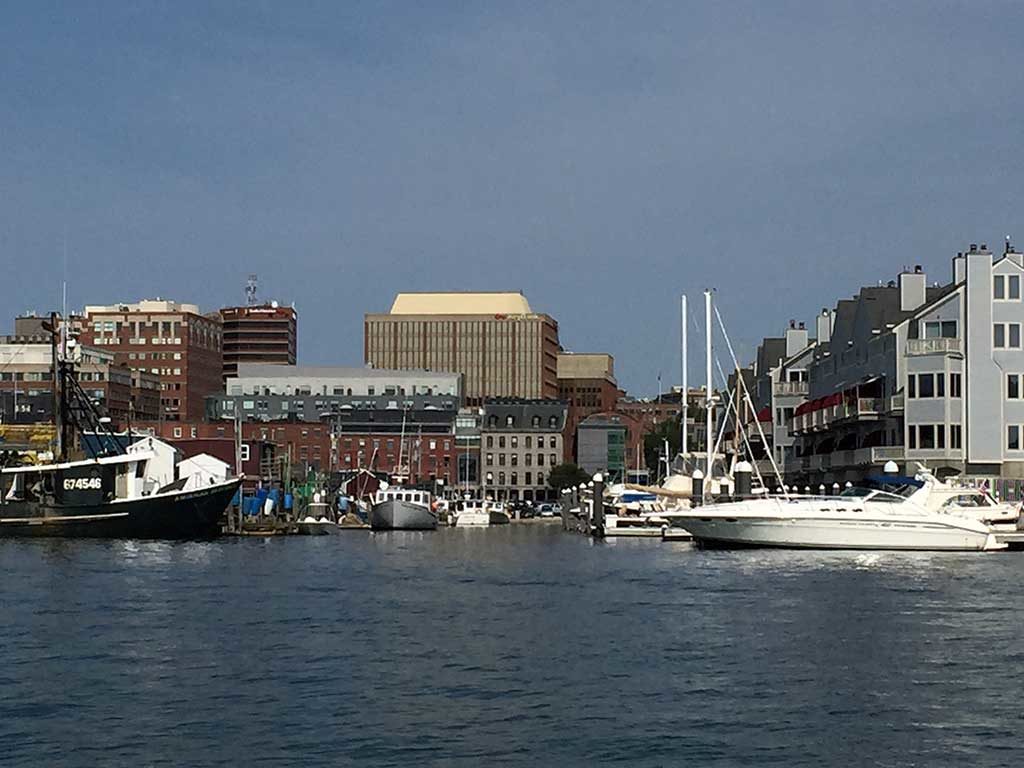
UPDATE: Councilors Justin Costa and Belinda Ray withdraw from mayor’s race. Read more: “Justin Costa Withdraws from Mayor’s Race.” (Updated 7/18/2019)
By Cameron Autry
District 4 City Councilor Justin Costa has tossed his hat in the ring for the Portland mayoral election. Costa, a 35-year-old accountant, represents the East Deering and Back Cove neighborhoods, and currently chairs the council’s Economic Development Committee and sits on the Finance Committee.
In an interview with the West End News, Costa said “I feel like there’s a real need for someone that can come and calm things down and get the right people around the table to deal with these really complex issues.”
Justin Costa previously served on the school board for six years and has sat on the City Council for four years. He touts his experience in both positions as an advantage over his opponents.
JUSTIN COSTA ON HOUSING DENSITY

On the critical issue of housing, Costa views developing off peninsula as a viable solution, and cited the Forest Avenue corridor as the best location to do so. He also listed the Allen Avenue and Stevens Avenue corridors as potential development sites.
“We need to get very serious about focusing on how we’re going to expand housing density or increase housing density off the peninsula because there’s only so much land to go around,” said Costa.
In Portland, the need for increased housing often clashes with neighborhood residents’ concerns that new construction could permanently alter the established character of a neighborhood. According to Costa, explaining the possible benefits of increased housing density, such as acoustic shielding, to residents of the adjacent neighborhoods off Forest Avenue is a crucial component of new housing development.
Working with the neighboring municipalities of Westbrook and South Portland, Costa also noted, is another component of the housing crisis because these cities along with Portland comprise the same housing market.
Further, Costa supports expanding the Portland Housing Trust Fund in order to spur development of affordable and workforce housing. Being able to provide funds for projects presented by affordable housing developers — such as the Portland Housing Authority, Community Housing of Maine, and Avesta Housing — is an example of how this policy could play out according to Costa.
ON ECONOMIC OPPORTUNITY
Another program Costa cited interest in expanding includes the Office of Economic Opportunity, which provides services to immigrants and new residents as they integrate into the local economy. Currently, the Office of Economic Opportunity directs immigrants and job seekers to English language classes, job training, and workforce preparedness programs.
Costa views immigration as the strongest solution for addressing Maine’s workforce shortage. This labor shortage, according to Charles Colgan, former state economist and professor emeritus at the University of Southern Maine’s Muskie School of Public Service, will lead to decreased productivity as employers struggle to staff their businesses, significantly decreased tax revenue, and will discourage entrepreneurs and bigger companies from expanding their operations in Maine.
“We have a real opportunity in Portland because of our immigration,” said Costa. “That is by the numbers what is saving Southern Maine right now.”
Maine has the grayest population in the country, with a median age of 44.3 compared to the national median age of 37.08.
ON WATERFRONT DEVELOPMENT

When asked about waterfront development, Costa backs supporting fishermen and marine industry along the water facing side of Commercial Street. However, he also stated that on “the inland side of Commercial Street, I think we have to allow some more flexibility.”
Waterfront development has become a symbolic issue in Portland. Many longtime Portland residents view the expansion of the tourism industry throughout the Old Port and Commercial Street corridor — notably in the form of high-end boutique shops, restaurants, and hotels — as both damaging to the small town feel of Portland and as a factor contributing to rising rents.
ON HOMELESS SHELTER
On the subject of a new homeless shelter, Costa said he wasn’t happy with either potential site — 645 Riverside Street or 431 Commercial Street (known as Angelo’s Acre) — for a homeless shelter proposed by the City’s Health and Human Services and Public Safety Committee.
Costa pointed out past resident concerns over new development in the area, along with the current moratorium on non-marine development along Commercial Street, as signs that the site would not be a suitable location. He also expressed concerns with the Riverside Street location due to its lack of proximity to services.

Assuming a more complicated position, Costa would like to see Medicaid expansion play out further before moving forward with the construction of a homeless shelter. Governor Janet Mills signed off on implementing the 2017 voter approved referendum to expand Medicaid on her first day in office in 2019. Former Governor Paul Lepage initially blocked the proposal.
With more robust funding of health care in Maine, Costa claims that some service providers will be able to access these funds to provide emergency sheltering, thereby reducing the number of beds the City will need to provide.
Along with Councilors Belinda Ray and Spencer Thibodeau, Costa will be running for mayor against former Portland School Board Chair Kate Snyder. Current Mayor Ethan Strimling has yet to formerly announce that he will run but has already filed the initial paperwork to do so. The election will take place on November 5th, 2019.





